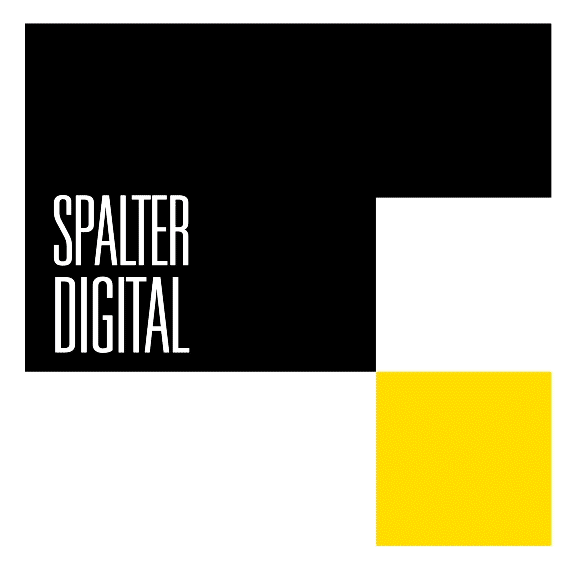The Anne and Michael Spalter Digital Art Collection (Spalter Digital), is one of the world’s largest private collections of early computer art, comprising works from the second half of the twentieth century to present day. Spalter Digital, which focuses primarily on plotter drawings, includes other 2D media as well as sculpture and 16mm film, is home to major and iconic examples from key artists in the field.
Spalter Digital has loaned artwork and/or images to the Museum of Fine Arts (Boston), the Museum of Modern Art (New York), The Venice Biennale, the Victoria and Albert Museum (London), The Los Angeles County Museum of Art (California), The Pompidou (Paris), The Tate (London), The Museum of Contemporary Art Chicago, Jeu de Paume (Paris), The Buffalo AKG Art Museum (Buffalo, NY), the Fondazione Bevilacqua La Masa (Venice), the Daelim Museum (Seoul), among others.
In 2023, The Fleet Library at RISD created the Anne, Michael, and Amelia Spalter Computer Art Collection Library; a world-class research and reference collection for the study of the foundational period of computer, algorithmic and generative art, 1965-2000.
Offering public access to the collection is a central principle of Anne, Michael and Amelia Spalter’s dedication to advancing the digital arts. We welcome you to engage this site as a vital part of the birth, evolution and revolution of the digital arts.
Anne Spalter is a leading digital artist, creating dystopian landscapes with AI and other technological tools. Her hope is that after seeing her art you will perceive and appreciate contemporary systems of human movement, travel, management, and control in new ways.
Spalter’s surreal art creates a darkly mesmerizing sci-fi experience, mixing media such as digital videos, AI, crypto art, drawing, painting, weaving, and even gigantic inflatables. Spalter’s apocalyptic view of the world is informed by her frequent travels, knowledge of sci-fi novels, movies, and the collective unconscious. When people explore her post-apocalyptic installations, they wander through an intense atmosphere filled with high waves, damaged spaceships, and flaming fires. All these are portrayed with glowing colors and pulsing patterns.
Spalter has been actively working in digital art for decades; she established the first digital fine arts courses at Brown University and RISD during the 90s, and wrote The Computer in the Visual Arts textbook which is used internationally. Together with Michael Spalter she oversees Spalter Digital, one of the largest private collections of early computer art.
This past year she was part of MASS MoCA’s alumni residency; named as one of the 50 most important crypto artists by Rizzoli; participated in the SPRING/BREAK Art Show NYC and the CADAF Art Fair (Nov 11-13); and released RABBIT TAKEOVER, an NFT project that sold out in five minutes. Her 20-minute NFT video piece The Bell Machine was acquired by the Buffalo AKG Museum in December 2022.
Spalter’s works can be found in many private collections and museums such as The Victoria and Albert, The AKG Buffalo Art Museum, The RISD Museum, and The Museum of CryptoArt, the Thoma Collection, and the Progressive Collection. Her NFTs have been sold at auction through Sotheby’s and Phillips and featured in the New York Times. She lectures frequently on digital art practice, theory and the market.
Michael Spalter was the Chair of the Board of Trustees of the Rhode Island School of Design (RISD) from 2011 to January 2023.
He was also on the inaugural advisory boards of Harvard University’s Cultural Enterprise initiative, the Nantucket Project and the Whitney Museum of American Art’s Digital Art Acquisition Committee. He also served as a Trustee of the International Council of the Louvre for seven years Co-Chairing its first permanent endowment.
All works that appear on the Anne and Michael Spalter Digital Art Collection website are original works created by the artists and are therefore copyrighted by the artists.
No image or information displayed on this website may be reproduced, retransmitted, or copied (other than for the purposes of fair dealing, as defined by the Copyright Act of 1968) without the expressed written permission of Anne or Michael Spalter. Any infringement of the Copyright Act of 1968 and its amendments may be subject to legal action.
Fair Use Act Disclaimer: This site is for educational purposes only.
Fair Use Copyright Disclaimer: Under section 107 of the Copyright Act of 1976, allowance is made for “fair use” for purposes such as criticism, comment, news reporting, teaching, scholarship, education, and research. Fair use is a use permitted by copyright statute that might otherwise be infringing.
Fair Use Definition: Fair use is a doctrine in United States copyright law that allows limited use of copyrighted material without requiring permission from the rights holders, such as commentary, criticism, news reporting, research, teaching, or scholarship. It provides for the legal, non-licensed citation or incorporation of copyrighted material in another author’s work under a four-factor balancing test.
